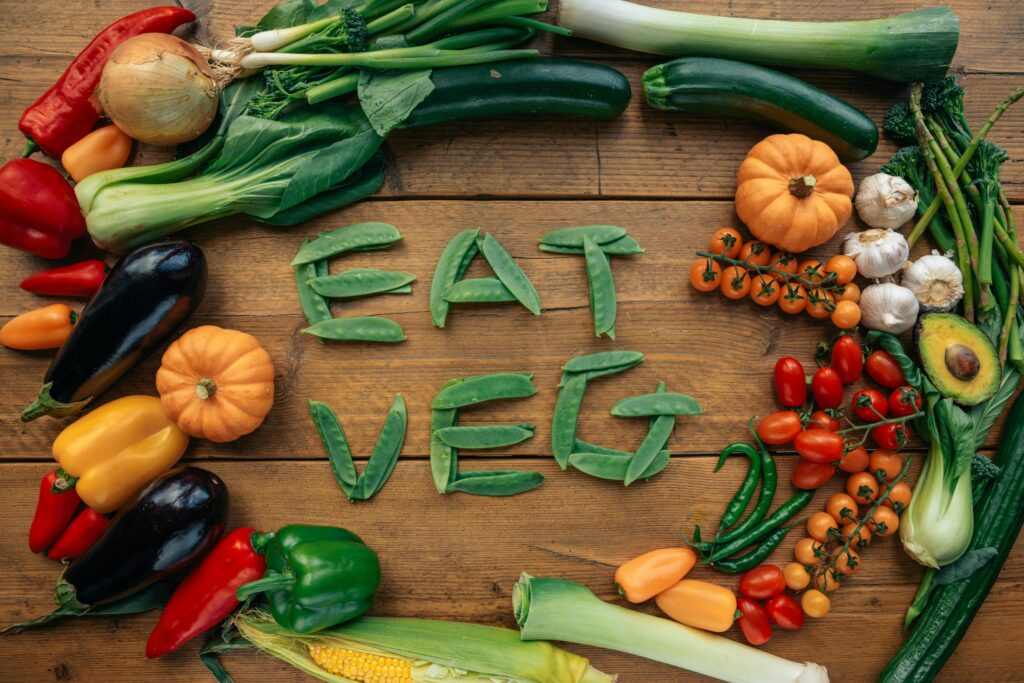By A. Geri
Organic food has become increasingly popular as people seek healthier and more sustainable dietary options. But what makes organic food a better choice for our health and why choose organic ? Let’s dive into the benefits of organic food and the reasons it might be worth considering it for your diet.
“Organic” generally refers to something that is derived from living organisms. Its meaning varies depending on the context. The most common uses in Agriculture and Food are following: “organic” refers to farming practices that avoid synthetic chemicals, such as pesticides, herbicides, and fertilizers. Organic farming relies on natural processes, like crop rotation, composting, and biological pest control. Food labeled as organic is: ” grown without genetically modified organisms (GMOs), artificial additives, or irradiation.Organic animal products, such as meat, eggs, and dairy, come from animals raised without antibiotics or growth hormones, often in more humane conditions. Next, i will include a list of the reasons we as humans responsible for our own wellbeing should preffer to eat organic foods.
1. Fewer Pesticides and Chemicals
One of the most significant advantages of organic food is the reduced exposure to pesticides and harmful chemicals. Organic farming practices avoid synthetic pesticides, herbicides, and fertilizers, relying instead on natural methods for pest and weed control. This means that organic produce has significantly lower pesticide residues, which is important as long-term exposure to these chemicals has been linked to various health issues, including hormone disruption, neurotoxicity, and increased cancer risk.
2. Higher Nutritional Value
Some studies suggest that organic foods may contain higher levels of certain nutrients compared to conventionally grown produce. For example, organic fruits and vegetables often have higher concentrations of antioxidants, such as vitamin C, flavonoids, and carotenoids. These antioxidants are crucial for neutralizing free radicals in the body, reducing oxidative stress, and potentially lowering the risk of chronic diseases like heart disease and cancer.
3. No Genetically Modified Organisms (GMOs)
Organic foods are free from genetically modified organisms (GMOs), which are plants or animals whose DNA has been altered in ways that do not occur naturally. While the debate over the safety of GMOs continues, choosing organic ensures that you avoid consuming these modified foods. Some consumers prefer organic options because of concerns about the long-term health effects and environmental impact of GMOs.
4. Better for Hormone and Antibiotic Resistance
In organic farming, livestock is raised without the use of antibiotics, growth hormones, or other synthetic drugs. This is significant because the overuse of antibiotics in conventional farming can contribute to antibiotic resistance, a growing public health concern. Additionally, the absence of growth hormones means that organic meat and dairy products are free from these substances, which some research suggests could have negative effects on human health.
5. Supports Immune System
The reduced exposure to synthetic chemicals and the potentially higher nutrient content of organic foods can support a healthier immune system. A diet rich in organic fruits, vegetables, and whole grains provides the essential vitamins, minerals, and antioxidants needed to maintain a robust immune response.
6. Better Taste and Quality
Many people who choose organic believe that it tastes better than conventionally grown food. While taste is subjective, the care taken in organic farming to preserve the natural flavors and quality of food can result in more flavorful fruits, vegetables, and meats. Higher quality and taste can also encourage healthier eating habits, making it easier to consume more fresh produce.
7. Supports Sustainable Farming Practices
While this benefit is more environmental, it indirectly supports human health. Organic farming practices emphasize sustainability, including crop rotation, composting, and natural pest control, which help maintain healthy soil and ecosystems. By supporting organic farming, you contribute to a healthier planet, which in turn supports better overall health through cleaner air, water, and a more balanced ecosystem.
A Holistic Approach to Health
Choosing organic food is more than just a trend, it’s a commitment to health, sustainability, and quality. By opting for organic, you reduce your exposure to potentially harmful chemicals, enjoy more nutrient-rich food, and support farming practices that are better for the environment. While organic foods may sometimes be more expensive, the benefits they offer make them a worthy investment in your health and well-being.
I hope this post article captured your attention . I will continue writing on this topic, as it is of high value for our human wellbeing. It will be valuable to explore it further in order to get the most of the benefits of organic foods. Stay tuned and expect to read more. If you have not registered for my newsletter please feel free to add your email address and recieve latest post from @gerisorganicblog-com.

